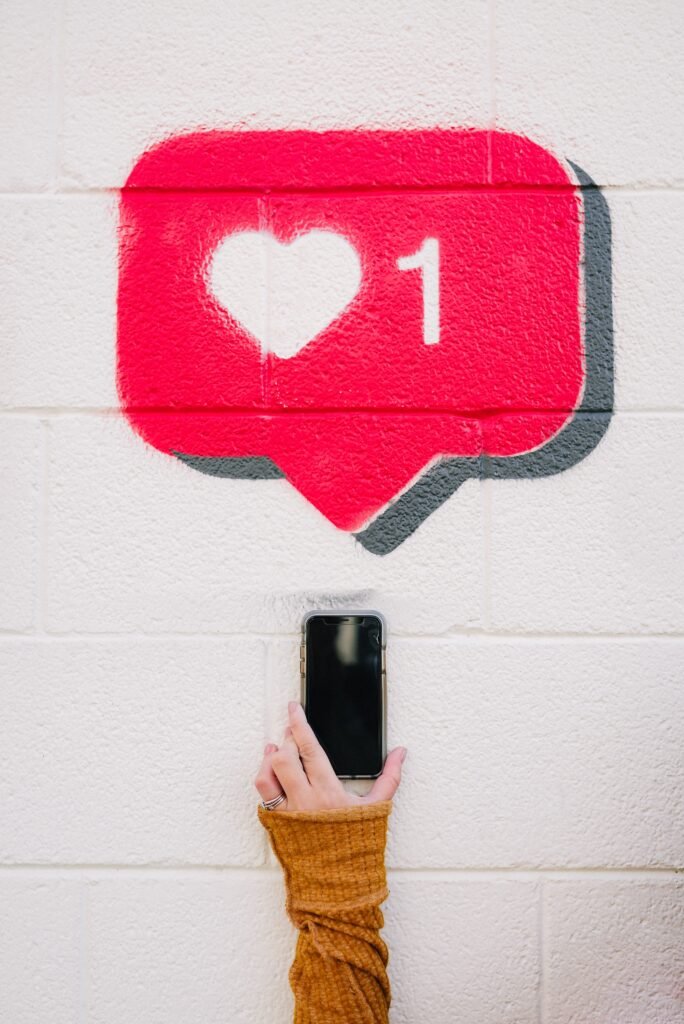In a world increasingly driven by technology, it’s impossible to deny the significant impact that artificial intelligence (AI) has had on our lives. From smart assistants to personalized recommendations, AI has seamlessly integrated into our daily routines. But what about its influence on social interactions? With AI becoming more prevalent in our social media platforms, communication tools, and even our virtual assistants, it’s crucial to explore how this transformative technology is shaping the way we interact with one another. In this article, we will delve into the fascinating world of AI and its impact on our social interactions. So, get ready to discover how AI is not just changing the way we live but also how we connect with others.

This image is property of images.unsplash.com.
The Definition of AI
Artificial Intelligence, commonly known as AI, refers to the development of intelligent machines that can perform tasks and make decisions that typically require human intelligence. This field of computer science aims to create machines that can mimic human cognitive processes, such as learning, problem-solving, perception, and decision-making.
Understanding Artificial Intelligence
AI is a broad concept that encompasses various techniques and approaches. It includes machine learning, where algorithms are trained on large amounts of data to improve performance, and natural language processing, where machines can understand and process human language. AI can be categorized into different types based on their capabilities and functions.
Types of AI
There are different types of AI, each designed for specific purposes. Weak AI, also known as narrow AI, refers to AI systems that are built to perform a specific task, such as voice recognition or image classification, but lack general human-level intelligence. Strong AI, on the other hand, aims to develop machines that possess human-like intelligence, able to understand and perform any intellectual task that a human being can do.
Applications of AI
AI has found numerous applications across various industries and sectors, including healthcare, finance, transportation, and entertainment. In healthcare, AI is utilized in medical imaging analysis, drug discovery, and personalized medicine. AI algorithms are also employed in financial institutions to detect fraud, make investment decisions, and automate processes. Self-driving cars and transportation systems rely on AI for navigation and decision-making. Moreover, AI plays a significant role in the entertainment industry through video game development, virtual reality experiences, and content creation.
AI and Social Interactions
AI has had a considerable impact on social interactions, reshaping the way people communicate, form relationships, and engage with technology. Its influence can be observed in both positive and negative aspects of social interactions.
Overview of AI’s Impact on Social Interactions
AI has transformed social interactions by introducing smart systems and technologies that can analyze, interpret, and respond to human behavior. From virtual assistants like Siri and Alexa to chatbots and social media algorithms, AI is now a ubiquitous presence in people’s daily lives. It has the potential to enhance communication, provide personalized recommendations, and automate various processes. However, it also raises concerns regarding privacy, authenticity, and human dependency on machines.
Positive Effects of AI on Social Interactions
One of the positive effects of AI on social interactions is the improvement in communication efficiency and accessibility. AI-powered virtual assistants and chatbots offer instant responses and support, enabling individuals to receive information and assistance quickly. Moreover, AI enhances social media experiences by providing personalized content, allowing users to connect with like-minded individuals and engage in meaningful discussions.
AI can also enhance professional relationships by automating tasks and streamlining workflows. For example, AI tools can analyze large volumes of data and generate valuable insights, helping businesses make informed decisions and improve customer experiences. Additionally, AI-powered translation tools facilitate communication between individuals who speak different languages, promoting inclusivity and bridging cultural barriers.
Negative Effects of AI on Social Interactions
Despite the positive aspects, AI’s impact on social interactions also brings certain challenges. One concern is the potential loss of human connection and authenticity. As AI becomes more prevalent in communication, there is a risk of people relying too heavily on machines for social interaction, diminishing the importance of genuine human connections.
Another issue is the potential for privacy breaches and data misuse. AI-powered social media platforms and algorithms collect vast amounts of user data, which can be manipulated for targeted advertising and personalized content. This raises ethical concerns regarding individuals’ privacy and the potential for manipulative practices.
AI in Communication and Relationships
AI’s influence on social interactions extends beyond general communication to specific aspects of relationships, both personal and professional.
AI in Communication
AI has revolutionized communication by enabling seamless interactions through voice recognition, natural language processing, and machine learning algorithms. Virtual assistants, such as Siri, Google Assistant, and Alexa, use AI to understand and respond to users’ voices, perform tasks, and provide information. These virtual assistants have become increasingly sophisticated, able to handle complex queries and engage in natural conversations.
Chatbots, powered by AI, are also transforming communication across various platforms. From customer service chatbots to automated messaging systems, AI-powered chatbots can handle routine inquiries, offer personalized recommendations, and provide assistance, enhancing user experiences.
AI and Personal Relationships
AI has the potential to impact personal relationships in various ways. AI-powered technologies, like virtual companions and AI-driven relationship coaches, can provide emotional support and guidance. These technologies use algorithms to understand individuals’ emotions and offer personalized advice, potentially helping individuals improve their interpersonal skills and relationships.
However, relying too heavily on AI for relationship advice or emotional support can have negative consequences. It is essential to strike a balance between the benefits of AI and the importance of genuine human connections.
AI and Professional Relationships
In the professional realm, AI has the potential to streamline workflows, automate tasks, and improve collaboration. AI tools can analyze vast amounts of data to extract insights, assist with decision-making processes, and enhance productivity. For example, AI-powered project management tools can optimize resource allocation, track progress, and identify potential risks, all contributing to efficient professional relationships.
Furthermore, AI can facilitate cross-cultural communication and understanding in global workplaces. Translation tools powered by AI can help bridge language barriers, allowing individuals from diverse backgrounds to collaborate effectively.
AI in Social Media
AI has become an integral part of social media platforms, shaping the way users engage, interact, and consume content.
AI and Social Media Platforms
Social media platforms utilize AI to enhance user experiences and personalize content. AI algorithms analyze user behavior, preferences, and interests to deliver tailored content and recommendations. For example, the news feed on platforms like Facebook and Instagram is curated based on users’ interactions, ensuring that they see relevant posts.
AI and User Engagement
AI has significantly improved user engagement on social media platforms. AI-powered chatbots, for instance, enable businesses to interact with customers in real-time, addressing inquiries and delivering personalized recommendations. Moreover, AI algorithms monitor user engagement metrics, analyze data, and optimize content delivery to maximize user interactions and satisfaction.
AI and Content Creation
AI is also impacting content creation on social media. AI-powered tools can generate and curate content based on users’ preferences and interests. For instance, AI can recommend hashtags, filters, or captions for images, improving users’ storytelling abilities. Additionally, AI algorithms can analyze social media trends and user preferences to identify popular topics and generate relevant content ideas.

This image is property of images.unsplash.com.
AI in Virtual Assistants and Chatbots
Virtual assistants and chatbots are prominent examples of AI technologies that have become increasingly prevalent in various industries.
AI-powered Virtual Assistants
Virtual assistants, such as Siri, Google Assistant, and Alexa, rely on AI to perform tasks, provide information, and assist users in their daily lives. These intelligent systems use natural language processing and machine learning algorithms to understand user commands and respond appropriately. Virtual assistants have become indispensable tools, performing functions such as setting reminders, providing weather updates, and controlling smart home devices.
Chatbots and AI
AI-powered chatbots are transforming the way businesses and organizations interact with customers. Chatbots, deployed on websites, messaging platforms, and social media, can handle routine inquiries, provide customer support, and even complete transactions. By utilizing AI algorithms, chatbots can offer instant responses, personalized recommendations, and efficient problem-solving, improving customer experiences and reducing the burden on human customer service representatives.
Impact of AI on Customer Service
AI’s impact on customer service is significant. With the help of AI-powered virtual assistants and chatbots, businesses can provide 24/7 support, ensuring prompt responses to customer inquiries. Moreover, AI algorithms can analyze customer data to enhance personalization, enabling businesses to tailor their services and recommendations based on individual preferences. This improves customer satisfaction and loyalty.
AI in Online Dating
The use of AI in online dating has brought about significant changes, revolutionizing the way individuals search for romantic partners and connect with others.
AI’s Role in Online Dating
AI plays a crucial role in various aspects of online dating. Matching algorithms, powered by AI, use data analysis and machine learning techniques to match individuals based on compatibility. These algorithms consider factors such as interests, preferences, location, and demographic information to suggest potential matches, enhancing the efficiency of the online dating process.
Matching Algorithms
AI-powered matching algorithms have the potential to improve the accuracy and success rate of online dating platforms. By utilizing large amounts of data and sophisticated models, these algorithms can identify patterns, similarities, and potential chemistry between individuals. This enables users to connect with like-minded people who share their interests and values, increasing the chances of finding compatible partners.
Privacy and Security Concerns
AI-powered online dating platforms raise concerns regarding privacy and security. The collection and analysis of personal data by AI algorithms raise questions about data protection, potential breaches, and the potential misuse of information. Additionally, AI algorithms may inadvertently perpetuate biases or stereotypes, leading to discriminatory or unfair matching outcomes. Ensuring user privacy and addressing transparency issues are crucial in the development and use of AI technologies in online dating.

This image is property of images.unsplash.com.
AI in Gaming and Entertainment
AI has made significant contributions to the gaming and entertainment industry, enhancing gameplay experiences and creating immersive virtual worlds.
AI in Video Games
AI has revolutionized the world of video games by introducing intelligent and adaptive characters, advanced enemy AI, and dynamic game environments. Game developers utilize AI algorithms to create non-player characters (NPCs) that mimic human behavior, making games more challenging and realistic. AI-based procedural generation techniques also allow for the creation of vast and immersive game worlds, providing endless possibilities for exploration and adventure.
AI in Virtual Reality (VR)
AI’s combination with virtual reality technology has given rise to compelling and immersive experiences. AI algorithms can analyze user interactions, preferences, and behavioral patterns to personalize the virtual reality experience, creating unique and engaging content. Moreover, AI-powered virtual reality simulations can dynamically adjust to user actions, providing responsive and realistic environments.
AI in Entertainment Industry
AI is also making waves in the entertainment industry, impacting content creation and distribution. AI-powered tools can analyze large amounts of data, including audience preferences and trends, to generate personalized content recommendations. Streaming platforms like Netflix and Spotify utilize AI algorithms to curate and recommend movies, TV shows, and music based on users’ interests and behavior. Additionally, AI can be used in post-production processes, enhancing visual effects, and automating editing tasks.
AI in Social Networks
Social networks have integrated AI technologies to enhance user experiences, improve content delivery, and personalize advertising.
AI-driven News Feed and Recommendations
Social media platforms employ AI algorithms to analyze users’ interactions, preferences, and behavior to curate personalized news feeds. These algorithms take into account factors such as user interests, previous engagements, and friend connections to deliver content that is relevant and engaging. By employing AI-driven news feeds, social networks aim to keep users hooked and increase user satisfaction.
AI and Personalized Advertising
AI plays a crucial role in personalized advertising on social media platforms. AI algorithms analyze users’ behavior, demographic information, and interactions to generate targeted advertisements that align with individual preferences. This targeted advertising approach enables businesses to reach their intended audiences effectively, resulting in higher conversion rates and more relevant advertisements for users. However, concerns regarding privacy and data usage arise due to the extensive collection and analysis of user information.
AI and Privacy
While AI technologies enhance user experiences and content delivery on social networks, privacy concerns must be addressed. User data collected by AI algorithms can be misused or compromised, posing risks to individuals’ privacy. It is crucial for social media platforms to prioritize data security, implement robust privacy policies, and ensure transparency in data collection and usage practices.
AI and Social Skills Development
AI serves as a valuable tool for social skills development, providing individuals with opportunities to improve their communication and empathy.
AI as a Tool for Social Skills Training
AI-powered technologies can simulate real-life social scenarios and provide individuals with opportunities to practice and improve their social skills. Virtual reality simulations and chatbot interactions can assist individuals in developing assertiveness, active listening, and effective communication techniques. These tools create safe and controlled environments for individuals to learn and practice social interactions, boosting their confidence and abilities.
AI and Empathy
AI also has the potential to improve empathy skills. Chatbots and virtual companions utilize AI algorithms to understand and respond to users’ emotions, fostering empathy and emotional connections. By interacting with AI-powered systems that simulate human emotions, individuals can develop a deeper understanding of empathy, compassion, and emotional intelligence.
Potential Risks and Ethical Considerations
When utilizing AI for social skills development, it is essential to consider potential risks and ethical concerns. The accuracy and reliability of AI systems in interpreting emotions can vary, leading to potential misunderstandings or misrepresentation of emotions. Additionally, individuals may become overly reliant on AI simulations, compromising their ability to develop genuine human connections. Ethical considerations, such as ensuring informed consent, protecting user privacy, and addressing biases, must be addressed when developing and deploying AI for social skills training.
Conclusion
In conclusion, AI has profoundly impacted social interactions, influencing the way people communicate, form relationships, and engage with technology. AI’s positive effects include improved communication efficiency, enhanced user experiences, and streamlined workflows. However, concerns such as loss of human connection and privacy breaches also arise. AI’s influence extends to various aspects of social interactions, including communication, relationships, social media, virtual assistants, online dating, gaming, and social networks.
AI-powered technologies like virtual assistants and chatbots have transformed communication, providing instant support and personalized recommendations. In personal and professional relationships, AI can offer emotional support, facilitate cross-cultural understanding, and optimize workflows. Social media platforms rely on AI algorithms for content curation and personalized advertising.
AI’s impact on online dating ranges from matching algorithms that increase compatibility to concerns about privacy and security. In gaming and entertainment, AI enhances gameplay experiences and content creation, while social networks use AI for personalized news feeds and targeted advertising. AI also serves as a tool for social skills development, promoting communication and empathy, though ethical considerations must be addressed.
As AI continues to advance, future developments and implications are yet to be fully realized. The ongoing integration of AI into social interactions will shape the way individuals engage with technology and each other, requiring continuous evaluation and responsible implementation to ensure positive outcomes.
The comprehensive understanding of AI’s impact on social interactions allows for informed discussions and considerations of its benefits, challenges, and ethical concerns. By recognizing the potential of AI and its implications, individuals and organizations can navigate the evolving landscape of AI-driven social interactions responsibly and ethically.
